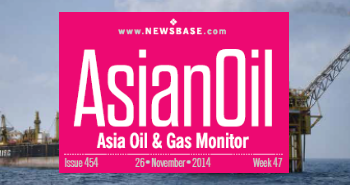Seoul summons Iranian ambassador after “master and servant” remark over $7bn of oil money frozen in Korean banks
Iran's ambassador to Seoul was summoned to the South Korean Foreign Ministry on July 23 as an official protest was lodged over reports that Tehran is mulling legal action against Seoul over the freezing of Iranian assets.
Since September last year, an estimated $7bn (€6.06bn) in Iranian funds have been held in two South Korean banks. The funds were immobilised after US sanctions waivers granted to a handful of countries including South Korea on imports of Iranian oil expired.
Iran’s foreign ministry earlier this week warned of legal action in the International Court of Justice if Korea kept up with its refusal to transfer the money. No doubt earning the ire of the South Koreans, spokesman for the ministry, Seyyed Abbas Mousavi, described ties between Washington and Seoul as like a "master-servant relationship". Seoul was afraid of violating US sanctions on Iran by delivering to Tehran what was owed to it, he said.
Iranian Ambassador Saeed Badamchi Shabestari met with Koh Kyung-sok, director-general of the South Korean Foreign Ministry's division for African and Middle Eastern affairs. "Regrets" over Mousavi's "inappropriate" comments were expressed to Shabestari.
"The Iranian side called for understanding and stressed that it was not the position of the Iranian government," reported Yonhap news agency.
The funds frozen in the South Korean banks were being used to remunerate Iran for oil imports and the export of goods to Iran.
South Korea stopped buying Iranian oil in May last year when the US decided not to tolerate any more exemptions for purchases of crude shipped from Iran.
Iranian President Hassan Rouhani in June ordered Iranian central bank governor Abdolnasser Hemmati to pursue "firm measures", including legal action, to force South Korea to release the funds, according to news reports in Iran.
Robert Dujarric, a professor of international relations at the Tokyo campus of Temple University, told DW that Tehran's demands indicated that it was increasingly feeling the impact of US sanctions.
"It's not only the sanctions, though," he said. "There are also concerns over oil prices and the coronavirus pandemic, so it appears that they are looking for any sort of financial gain that would be able to help them, at least in the short term."
"We must remember that Seoul is under a lot of pressure already from the US not to go soft on sanctions," Dujarric was also quoted as saying.
South Korea's relies heavily on US military support to ensure there are no military confrontations across the Demilitarized Zone with North Korea.
Over recent months, Seoul has been sending humanitarian aid to Tehran, including medicines and medical equipment, to help with the Iranian fight against the coronavirus.



Follow us online